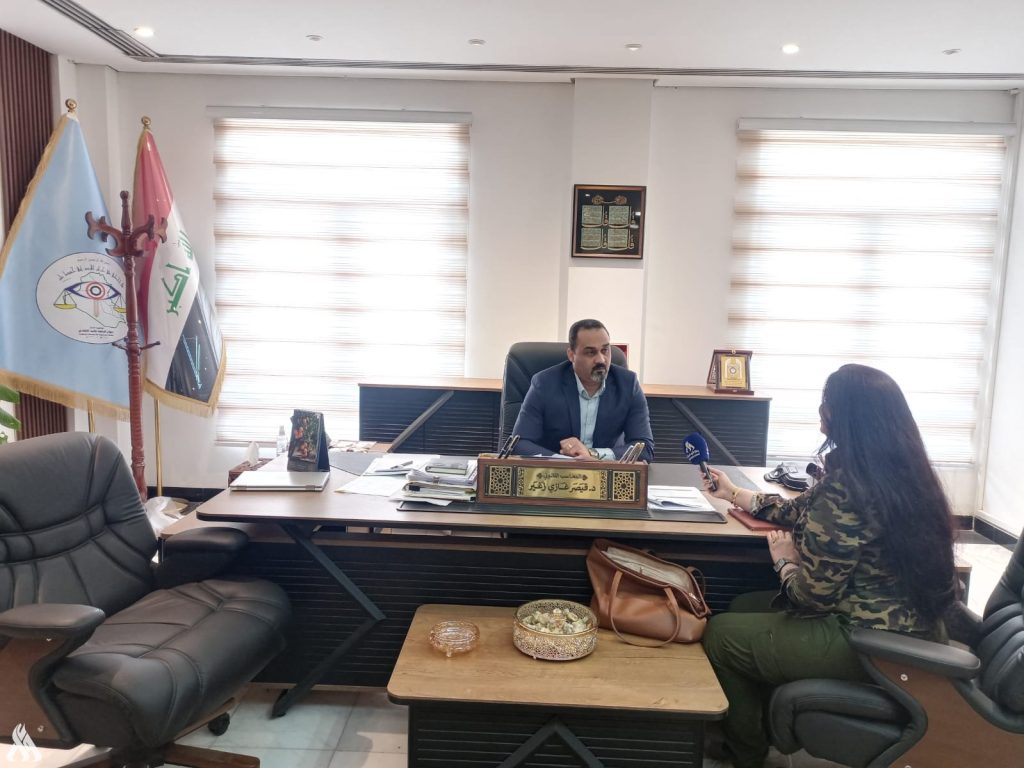
Baghdad – WAA – Fatima Rahma
The Financial Supervision Bureau announced today, Thursday, that it has taken measures to develop and improve the accounting and auditing professions in Iraq. While it referred to the issuance of the internal control guide binding on all government agencies, it confirmed the preparation of a draft of the updated unified accounting system in accordance with international standards.
The Deputy Chairman of the Financial Supervision Bureau, Qaisar Al-Saadi, told the Iraqi News Agency (INA): “The Federal Financial Supervision Bureau seeks to achieve its objectives specified by its founding law, including developing the accounting and auditing professions in Iraq.”
He explained that “one of the most prominent steps taken by the Bureau is issuing reports evaluating the internal control systems in ministries, entities not affiliated with a ministry, and governorates,” indicating that “the aim of this is to raise the level of performance of these formations, enhance efforts to combat financial and administrative corruption, improve institutional performance, and work on the principle of preventive control to reduce this phenomenon.”
He pointed out that “the Bureau issued the Internal Control Guide, which was circulated to all government agencies for mandatory adoption starting from 7/1/2024,” noting that “this guide aims to help these agencies accomplish their work in a way that ensures tight control and oversight over financial transactions and the preservation of public money.”
He added, “The Court has completed preparing a draft of the updated unified accounting system in accordance with international standards. This draft has been circulated to government agencies, unions and universities for the purpose of expressing their opinions and making appropriate amendments in preparation for its actual implementation in the near future.”
He added: “The Bureau also contributed to holding the first session of the Audit and Accounting Standards Board in the Republic of Iraq for the year 2024 after an interruption of more than four years, during which the audit and accounting issues were discussed and appropriate decisions were taken regarding them, which contributes to developing the work of the profession in Iraq.”
He pointed out that “these steps come within the framework of the Bureau’s commitment to developing and improving the accounting and auditing professions in Iraq in line with international standards and contributing to enhancing integrity and transparency in government institutions.”
He added, “The Court relies, in carrying out its work, on the international standards issued by the International Organization of Supreme Audit Institutions (intoThe Bureau is also a prominent member of the organization and has many contributions, including participation as a member of (5) working groups, attendance at seminars between INTOSAI and the United Nations, and cooperation with the INTOSAI Development Initiative in its various programs, in addition to the Bureau assuming the chairmanship of the Strategic Planning Committee in the organization.
Al-Saadi explained that “the Court cooperates with international and local organizations and similar oversight bodies such as the Dutch Court of Audit in the field of performance evaluation and peer review, the Court of Auditors in Morocco in the field of judicial oversight, the Polish Oversight Body in the field of risk-based auditing, as well as the German Cooperation Agency (Giz) and the Korea International Cooperation Agency (Koica) and the Japan International Cooperation Agency (Jika) and the Indian Technical and Economic Cooperation Program (ITEC)”.
He pointed out to the “multiple activities with oversight bodies in Arab and Islamic countries such as the General Auditing Bureau in the Kingdom of Saudi Arabia, the Audit Bureau in the State of Qatar, the Turkish Court of Accounts, the Supreme Audit Court in the Islamic Republic of Iran, the Accounting Council in the Algerian Republic, and many others,” noting that “these standards and evidence contribute, along with international cooperation, to enhancing the effectiveness and efficiency of the Bureau in carrying out its oversight work in a way that ensures transparency and integrity in government institutions.”
He stressed the “commitment of the Federal Audit Bureau to enhance transparency and integrity in all state institutions by working in accordance with international standards and effective cooperation with regulatory bodies and international organizations,” stressing “continuing efforts to develop the accounting and auditing professions and providing technical and accounting support to ensure optimal performance and preservation of public funds, in addition to giving great importance to supporting the role of youth in building the future by enhancing their capabilities to be real partners in combating corruption and evaluating government performance in order to achieve the desired goals.”


